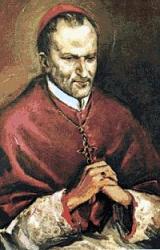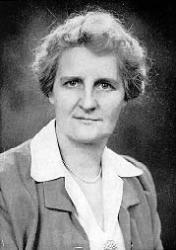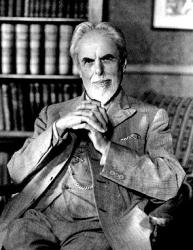Planning worship?
Check out our sister site, ZeteoSearch.org,
for 20+ additional resources related to your search.
- |
User Links
Person Results
Anonymous
Author of "Glory Be to God on High" in Yes, Lord! In some hymnals, the editors noted that a hymn's author is unknown to them, and so this artificial "person" entry is used to reflect that fact. Obviously, the hymns attributed to "Author Unknown" "Unknown" or "Anonymous" could have been written by many people over a span of many centuries.
Anonymous
W. Howard Doane

1832 - 1915 Person Name: William Howard Doane Arranger of "[Christ was born in Bethlehem]" in The Cyber Hymnal An industrialist and philanthropist, William H. Doane (b. Preston, CT, 1832; d. South Orange, NJ, 1915), was also a staunch supporter of evangelistic campaigns and a prolific writer of hymn tunes. He was head of a large woodworking machinery plant in Cincinnati and a civic leader in that city. He showed his devotion to the church by supporting the work of the evangelistic team of Dwight L. Moody and Ira D. Sankey and by endowing Moody Bible Institute in Chicago and Denison University in Granville, Ohio. An amateur composer, Doane wrote over twenty-two hundred hymn and gospel song tunes, and he edited over forty songbooks.
Bert Polman
============
Doane, William Howard, p. 304, he was born Feb. 3, 1832. His first Sunday School hymn-book was Sabbath Gems published in 1861. He has composed about 1000 tunes, songs, anthems, &c. He has written but few hymns. Of these "No one knows but Jesus," "Precious Saviour, dearest Friend," and "Saviour, like a bird to Thee," are noted in Burrage's Baptist Hymn Writers. 1888, p. 557.
--John Julian, Dictionary of Hymnology, Appendix, Part II (1907)
===================
Doane, W. H. (William Howard), born in Preston, Connecticut, 1831, and educated for the musical profession by eminent American and German masters. He has had for years the superintendence of a large Baptist Sunday School in Cincinnati, Ohio, where he resides. Although not a hymnwriter, the wonderful success which has attended his musical setting of numerous American hymns, and the number of his musical editions of hymnbooks for Sunday Schools and evangelistic purposes, bring him within the sphere of hymnological literature. Amongst his collections we have:—
(1) Silver Spray, 1868; (2) Pure Gold, 1877; (3) Royal Diadem, 1873; (4) Welcome Tidings, 1877; (5) Brightest and Best, 1875; (6) Fountain of Song; (7) Songs of Devotion, 1870; (8) Temple Anthems, &c.
His most popular melodies include "Near the Cross," "Safe in the Arms of Jesus," "Pass me Not," "More Love to Thee," "Rescue the Perishing," "Tell me the Old, Old Story," &c.
- John Julian, Dictionary of Hymnology (1907)
W. Howard Doane
Henry Wadsworth Longfellow

1807 - 1882 Person Name: Henry Wadsworth Longfellow, 1807-1882 Translator of "When Christ Was Born In Bethlehem" in The Cyber Hymnal Longfellow, Henry Wadsworth , D.C.L. was born at Portland, Maine, Feb. 27, 1807, and graduated at Bowdoin College, 1825. After residing in Europe for four years to qualify for the Chair of Modern Languages in that College, he entered upon the duties of the same. In 1835 he removed to Harvard, on his election as Professor of Modern Languages and Belles-Lettres. He retained that Professorship to 1854. His literary reputation is great, and his writings are numerous and well known. His poems, many of which are as household words in all English-speaking countries, display much learning and great poetic power. A few of these poems and portions of others have come into common use as hymns, but a hymn-writer in the strict sense of that term he was not and never claimed to be. His pieces in common use as hymns include:—
1. Alas, how poor and little worth. Life a Race. Translated from the Spanish of Don Jorge Manrique (d. 1479), in Longfellow's Poetry of Spain, 1833.
2. All is of God; if He but wave His hand. God All and in All. From his poem "The Two Angels," published in his Birds of Passage, 1858. It is in the Boston Hymns of the Spirit, 1864, &c.
3. Blind Bartimeus at the gate. Bartimeus. From his Miscellaneous Poems, 1841, into G. W. Conder's 1874 Appendix to the Leeds Hymn Book.
4. Christ to the young man said, "Yet one thing more." Ordination. Written for his brother's (S. Longfellow) ordination in 1848, and published in Seaside and Fireside, 1851. It was given in an altered form as "The Saviour said, yet one thing more," in H. W. Beecher's Plymouth Collection, 1855.
5. Sown the dark future through long generations. Peace. This, the closing part of his poem on "The Arsenal at Springfield," published in his Belfrey of Bruges, &c, 1845, was given in A Book of Hymns, 1848, and repeated in several collections.
6. Into the silent land. The Hereafter. A translation from the German.
7. Tell me not in mournful numbers. Psalm of Life. Published in his Voices of the Night, 1839, as "A Psalm of Life: What the heart of the Young Man said to the Psalmist." It is given in several hymnals in Great Britain and America. In some collections it begins with st. ii., "Life is real! Life is earnest."
The universal esteem in which Longfellow was held as a poet and a man was marked in a special manner by his bust being placed in that temple of honour, Westminster Abbey. [Rev. F. M. Bird, M.A.]
--John Julian, Dictionary of Hymnology (1907), p. 685
=======================
http://en.wikipedia.org/wiki/Henry_Wadsworth_Longfellow
Henry Wadsworth Longfellow
E. R. Latta

1839 - 1915 Author of "The Star" in Bright Beautiful Bells Rv Eden Reeder Latta USA 1839-1915. Born at Haw Patch, IN, the son of a Methodist minister, (also a boyhood friend of hymn writer Willam A Ogden) he became a school teacher. During the American Civil War he preached for the Manchester Methodist Church and other congregations (possibly as a circuit rider filling empty pulpits). In 1863 he married Mary Elizabeth Wright, and they had five children: Arthur, Robert, Jennie, two others. He taught for the public schools of Manchester, and later Colesburg, IA. He moved to Guttenberg, IA, in the 1890s, and continued writing song lyrics for several major gospel composers, including William Ogden, James McGranahan, James Fillmore, and Edmund Lorenz. He wrote 1600+ songs and hymns, many being widely popular in his day. His older brother, William, composed hymn tunes. He died at Guttenbert, IA.
John Perry
E. R. Latta
Alfonso M. de Liguori

1696 - 1787 Person Name: Alfonso de' Liguoi, 1696-1787 Author of "When Christ Was Born In Bethlehem" in The Cyber Hymnal Liguori, Alphonso Maria de, born at Marianella, near Naples, Sept. 27, 1696, became Bishop of St. Agatha of the Goths in 1762, and died Aug. 1, 1787. His hymns were gathered out of his works, translated by K. A. Coffin, and published as Hymns and Verses on Spiritual Subjects, &c, in 1863. (See Italian Hymnody, p. 1316, ii., 4). From this, "My Jesus! say what wretch has dare" ( Good Friday) is taken.
--John Julian, Dictionary of Hymnology, Appendix, Part II (1907)
=================
Liguori, Alfonso Maria de, pp. 1534, ii., 1577, i. In 1892, the translations of Liguori's hymns were not noted in detail because the originals were not accessible. We have lately found the Canzoncine Spirituali . . . di Sant’ Alfonso Maria de’ Liguori, Turin, 1830, in the library of the Oratory, London, and discovered that Bp. Coffin was merely the editor of the 1863 vol. of translations All those noted below are by Father Edmund Vaughan (q.v.). In 1863, nos. 7, 16 below are ascribed to Mgr. Falcoja and Mgr. Majello, but Father Vaughan now informs us that he thinks they were probably by St. Alfonso. Some of the 1863 translations appeared previously in Hymns for the Confraternity of the Holy Family, 1854, and in Holy Family Hymns, 1860. The best-known are:—
1. Dal tuo celeste trono. [B. V. M.] 1830, p. 60. Translated as "Look down, 0 Mother Mary." 1854, No. 7; 1863, p. 37.
2. Fiori, felici voi, che notte, e giorno. [Holy Communion.] 1830, p. 38. Translations (1) "0 happy "flowers! 0 happy flowers," by F. W. Faber, in Oratory Hymns, 1854, No.19; (2) "0 flowers, O happy flowers,'" 1803, p. 20.
3. Gesu mio, con dure funi. [Passiontide.] 1830, p. 44. Translated as "My Jesus! say, what wretch has dared." 1854, No. 5; 1863, p. 17.
4. Giacche tu vuoi chiamarmi padre. [St. Joseph to the Infant Jesus.] 1830, p. 54. Translated as "Jesus! let me call Thee Son." 1854, No. 11. 1863, p. 13, is in a different metre.
5. Lodiamo cantando. [Death of B. V. M.] 1830, p. 67. Translated as "Uplift the voice and sing." 1803, p. 49.
6. Mondo, piu per me non sei. [Surrender to Jesus.] 1830, p. 3. Translated as "World, thou art no more for me." 1803, p. 66. In Hymns for the Year, 1867, it begins "Jesus, Lord, be Thou my own" (st. iii. alt.).
7. 0 bello Dio, Signor del Paradiso. [The Love of God.] 1830, p. 56. Translated as "O God of loveliness." 1863, p. 118.
8. Partendo dal mondo. [Holy Communion.] 1830, p. 34. Translated as “When the loving Shepherd." 1863, p. 27.
9. Sei pura, sei pia. [B. V. M.] 1830, p. 62. Translated as "Thou art clement, thou art chaste." 1863, p. 36. in Hymns for the Year, 1807, and others, it begins with st. ii., "O Mother blest! whom God bestows."
10. Sto prigione entro quel Core. [Sacred Heart of Jesus.] 1830, p. 52. Translated as "I dwell a captive in this Heart," 1863, p. 15.
11. Tu scendi dalle stelle, O Re del cielo. [Christmas.] 1830, p. 42. Translated as "O, King of Heaven ! from starry throne descending." 1854, No. 4; 1803, p. 12.
The following are all in 1863 and in Hymns for the Year, 1867:—
12. Fly hither from the storm that rages round. For a Retreat.
13. In this sweet Sacrament, to Thee. Holy Communion.
14. Knowest thou, sweet Mary. B. V. M.
15. Let those who will for other beauties pine. The Beauty of God.
16. Mary, thy heart for love. Assum. Blessed Virgin Mary.
17. Mother Mary, Queen most sweet. B. V. M.
18. My God, O Goodness Infinite. Love of Jesus. In 1863 indexed under the chorus "Jesus, my sweetest Lord."
19. My soul, what dost thou? Answer me. Holy Communion.
20. O Bread of Heaven! beneath this veil. Holy Communion.
21. O how I love Thee, Lord of Heaven above. Christmas.
22. Raise your voices, vales and mountains. B. V. M.
23. 'Tis Thy good pleasure, not my own. The will of God.
Of these, nos. 13, 17 were taken by Father Vaughan from a Neapolitan Mission Hymn Book, the rest are found in 1830, as follows: 12 at p. 32; 14, p. 63; 15, p. 9; 16, p. 70 ; 18, p. 49; 19, p. 37; 20, p. 40; 21, p. 44; 22, p. 66; 23, p. 7. [Rev. James Mearns, M.A.]
--John Julian, Dictionary of Hymnology, New Supplement (1907)
Alfonso M. de Liguori
Avis B. Christiansen

1895 - 1985 Author of "Rejoice and sing" Avis Marguerite Burgeson was born in 1895 and lived in Chicago all her life. She attended the Moody Church, pastored for many years by Dr. Harry Ironside. In 1917, Avis Burgeson married Ernest Christiansen who later became a vice president of Moody Bible Institute. She was a modest and retiring woman, and sometimes used pen names: Avis Burgesson, Christian B. Anson and Constance B. Reid. She began writing poems in childhood, and before her death in 1985 had written thousands of them. She died in 1985.
NN, Hymnary
Avis B. Christiansen
Laurence Housman

1865 - 1959 Author of "When Christ was born in Bethlehem" in The Book of Common Praise Housman, Lawrence, author and artist, was born July 18, 1867, at Bromsgrove, Worcs. His devotional poetry is principally in his Spikenard, 1898, and Bethlehem, 1902. To the English Hymnal, 1906, he contributed eight translations (142, 188, 191, 228, 229, 230, 231, 234); also three original hymns, with a fourth previously published, viz.:—
1. Lord God of Hosts, within Whose hand. St. George.
2. The Maker of the sun and moon. Christmas. From Bethlehem, 1902, p. 75.
3. The Saint who first found grace to pen. St. Mark.
4. When Christ was born in Bethlehem. Holy Innocents. [Rev. James Mearns, M.A.]
--John Julian, Dictionary of Hymnology, New Supplement (1907)
==================
Born: July 18, 1865, Bromsgrove, Hereford, England.
Died: February 20, 1959, Glastonbury, Somerset, England.
Buried: St. Mary’s, Bathwick, Smallcombe, near Bath.
Housman studied art at the Lambeth School of Art and the Royal College of Art. He had great success as an illustrator, but when his eyesight began to fail, he turned to writing books and plays. He wrote 80 books during his lifetime. He often seemed to fall afoul of the censors, though, for religious and political reasons. A committed socialist and pacifist, in 1907, he helped found the Men’s League for Women’s Suffrage. He was also an honorary associate of the Women Writers’ Suffrage League. His works include:
Jump-to-Glory Jane, by Meredith
Goblin Market, by Christiantina Rossetti, 1893
The End of Elfintown, by Jane Barlow, 1894
Spikenard, 1898
The Sensitive Plant, 1898
Bethlehem, 1902
The Blue Moon, 1904
Angels and Ministers, 1921
Little Plays of St. Francis, 1922
Victoria Regina, 1937
The Unexpected Years, 1937 (autobiography)
--www.hymntime.com/tch
Laurence Housman
Grace Weiser Davis

Person Name: Grace Wieser Davis Author of "When Christ Was Born in Bethlehem" in Favorite Gospel Songs Grace Weiser Davis USA 1860-1933? Born near York, PA, she married judge James Nixon Davis in 1889. They attended the Asbury United Methodist Church in York. She became a Methodist evangelist. In 1900 she moved to Jersey City, NJ. She compiled several works, including: “Gems of gospel songs” (1885), “Favorite gospel songs” (1894) with Elisha A. Hoffman, “Childhood conversions” (1897).
John Perry
Grace Weiser Davis
Frederick G. Baker
1839 - 1919 Person Name: Frederick Baker Composer of "ST. SAVIOUR (Baker)" in The Cyber Hymnal Frederick George Baker was born in Shorwell, Isle of Wight on May 19, 1839. Served at St. Saviour’s Church, Shanklin, for almost 30 years. He died in Shaklin, Isle of Wight on March 10, 1919.
NN
Frederick G. Baker


 My Starred Hymns
My Starred Hymns


